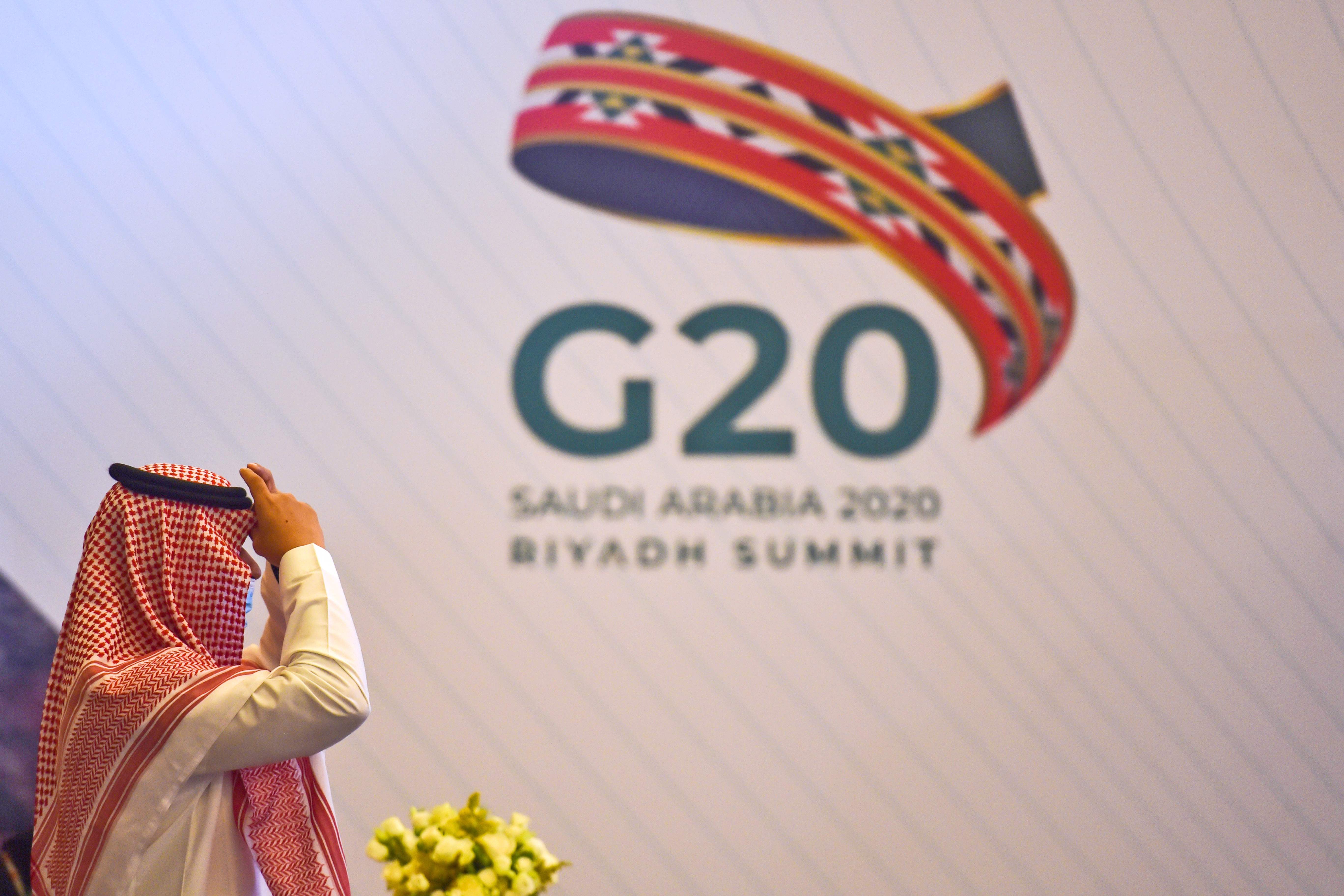Climate crisis last on agenda in G20 summit conclusion
Virtual forum hosted by Saudi Arabia also saw leaders clash over how best to ‘safeguard the planet’

Your support helps us to tell the story
From reproductive rights to climate change to Big Tech, The Independent is on the ground when the story is developing. Whether it's investigating the financials of Elon Musk's pro-Trump PAC or producing our latest documentary, 'The A Word', which shines a light on the American women fighting for reproductive rights, we know how important it is to parse out the facts from the messaging.
At such a critical moment in US history, we need reporters on the ground. Your donation allows us to keep sending journalists to speak to both sides of the story.
The Independent is trusted by Americans across the entire political spectrum. And unlike many other quality news outlets, we choose not to lock Americans out of our reporting and analysis with paywalls. We believe quality journalism should be available to everyone, paid for by those who can afford it.
Your support makes all the difference.It had been described as “among the most pressing challenges of our time” – but how to best tackle the climate and environmental crises was the last item on the agenda in the conclusion of the G20 summit held this weekend.
The virtual meeting of the world’s largest economies, hosted by Saudi Arabia, culminated in the production of the Riyadh Declaration, a document outlining how nations should approach key challenges in the coming years.
In the document, addressing the climate and environmental crises came behind other challenges, such as finding solutions to the Covid-19 pandemic, rebuilding the economy and improving global inequalities.
“I think that’s the choice of the presidency,” a former international climate adviser for Italy who did not want to be named told The Independent.
“It doesn’t reflect what the majority of leaders wanted. It’s very clear that climate, especially linking it to Covid recovery, is at the top of the agenda for most world leaders.”
The G20 summit is a multilateral forum made up of 19 of the world’s largest economies and the European Union. The countries together comprise 85 per cent of the global economy and three quarters of global trade.
The presidency changes hands among members each year and this year it was hosted virtually by Saudi Arabia, a country that has previously taken a hardline stance against increasing measures to tackle the climate crisis.
There were also no new substantial commitments in the document on how to meet the goals of the Paris Agreement, the international treaty aimed at boosting climate action agreed by countries in 2015.
“There is no new commitment in there, it’s an agenda of what needs to happen,” the adviser said. “Of course, this isn’t sufficient because we already know the agenda and we know what needs to be done.”
It is now likely that “all eyes” will be on Italy, which is the next country due to take up the G20 presidency. After the declaration was made, Italy’s prime minister Giuseppe Conte tweeted: “Italy is ready to assume the G20 Presidency and lead the international community towards a sustainable and inclusive recovery.
“We will address today's major challenges putting People and the Planet at the heart of our agenda, to build a prosperous future for all.”
The UK will also play a key role in driving climate action from the world’s major economies next year. As well as hosting next year’s upcoming UN climate talks (known as COP26), the UK will also take up the G7 presidency.
In his opening words to the G20 summit, UK prime minister Boris Johnson said: “This week I announced a 10-point plan for the green industrial revolution in the UK, a significant package that will symbiotically tackle climate change and drive our economic recovery.
“[A greener future] will only be possible if the world’s leading economies drive forward more ambitious action more quickly to prevent further catastrophic climate change.
“Ahead of next month’s Climate Ambition Summit, I’m calling on my fellow leaders at the G20 to make bold pledges and harness our collective ingenuity and resources to defeat the pandemic and protect our planet and our future for generations.”
The UK’s Climate Ambition Summit is to be held on 12 December, the five-year anniversary of when a deal was reached for the Paris Agreement.
Mr Johnson’s comments at the summit stand in stark contrast to those from President Donald Trump, who called the Paris Agreement “unfair and one-sided” in his address to the summit.
However, Mr Trump’s successor, president-elect Joe Biden, has said that he would rejoin the Paris Agreement.
The election of Mr Biden, alongside more action on the climate crisis from China, who shocked the world by announcing a pledge to reach carbon neutrality by 2060 in September, could see a “step change” in efforts to tackle the climate crisis at key summits next year.
“Italy and the UK, which together represent Europe, are united to drive the climate agenda next year. The US is now onboard. And we now have China onboard. The three big powers are now all aligned,” said the adviser.
“The big question is: How much can we do next year? The last three years at the G20 have been about defending and protecting what we have. The next four years is going to be about how far we can go.”

Join our commenting forum
Join thought-provoking conversations, follow other Independent readers and see their replies
Comments